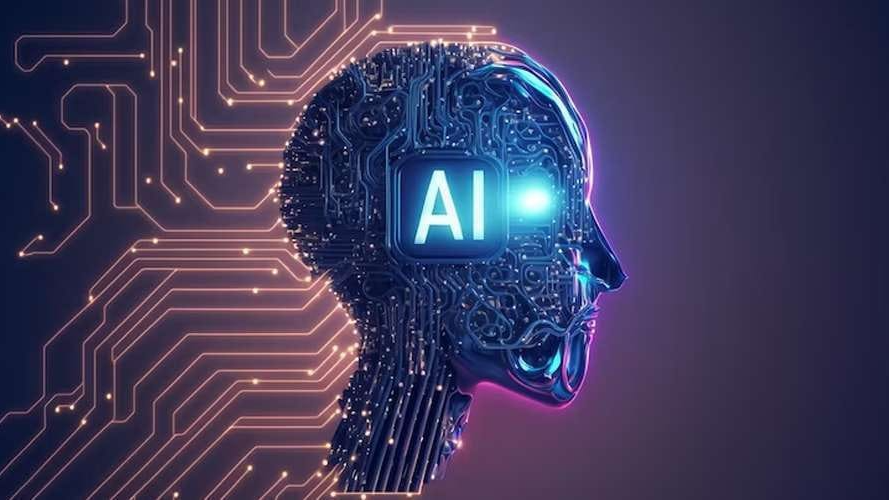The Future of Artificial Intelligence: How AI is Shaping Tomorrow’s World
Introduction: The Dawn of AI
Artificial Intelligence (AI) has transitioned from a futuristic concept to an integral part of our daily lives. From virtual assistants to predictive analytics, AI’s influence is pervasive, promising a future replete with innovation and efficiency.
The Evolution of Artificial Intelligence
AI’s journey began in the mid-20th century, evolving from basic machine learning algorithms to sophisticated deep learning models. Today, AI encompasses various subfields, including natural language processing, computer vision, and robotics, each contributing to its expansive capabilities.
See also: mufcmpb
AI in Healthcare: A New Era of Medicine
AI is revolutionizing healthcare by enhancing diagnostic accuracy, personalizing treatment plans, and streamlining administrative tasks. Machine learning algorithms analyze vast datasets to identify patterns, aiding in early disease detection and improving patient outcomes.
Transforming Education Through AI
In education, AI facilitates personalized learning experiences, automates administrative duties, and provides real-time feedback. Intelligent tutoring systems adapt to individual student needs, fostering a more engaging and effective learning environment.
AI’s Impact on the Workforce
While AI automates routine tasks, it also creates new job opportunities in AI development, data analysis, and cybersecurity. The workforce is undergoing a transformation, emphasizing the need for reskilling and lifelong learning to adapt to the changing job landscape.
Artificial Intelligence in Finance
Financial institutions leverage AI for fraud detection, risk assessment, and customer service. AI algorithms analyze transaction patterns to identify anomalies, enhancing security and operational efficiency.
Revolutionizing Transportation with AI
AI is at the forefront of transforming transportation through autonomous vehicles, traffic management systems, and predictive maintenance. These advancements aim to improve safety, reduce congestion, and enhance the overall travel experience.
AI in Environmental Conservation
Environmentalists employ AI to monitor ecosystems, predict natural disasters, and optimize resource management. AI-driven models analyze climate data, aiding in the development of sustainable solutions to combat environmental challenges.
The Role of AI in Entertainment and Media
AI personalizes content recommendations, automates video editing, and even creates music and art. In journalism, AI assists in data analysis and content generation, reshaping the media landscape.
Artificial Intelligence in Agriculture
Farmers utilize AI for crop monitoring, soil analysis, and predictive analytics to enhance yield and reduce waste. Drones and sensors collect data, enabling precision agriculture practices that promote sustainability.
AI and Cybersecurity
AI strengthens cybersecurity by detecting threats, analyzing vulnerabilities, and responding to incidents in real-time. Machine learning models adapt to evolving cyber threats, providing robust defense mechanisms.
Smart Cities: Urban Planning with AI
Urban planners integrate AI to optimize traffic flow, manage utilities, and enhance public safety. Smart cities leverage data analytics to improve infrastructure and provide better services to residents.
Ethical Considerations in AI Development
The rapid advancement of AI raises ethical concerns, including bias in algorithms, job displacement, and decision-making transparency. Developers and policymakers must collaborate to establish ethical guidelines and ensure responsible AI deployment.
AI and Data Privacy
AI systems process vast amounts of personal data, necessitating stringent data privacy measures. Compliance with regulations like GDPR ensures that user information is protected and used ethically.
The Future of AI in Space Exploration
AI aids space missions by analyzing astronomical data, navigating spacecraft, and conducting autonomous experiments. These technologies expand our understanding of the universe and enhance mission efficiency.
AI in Disaster Management
During natural disasters, AI predicts impact zones, coordinates emergency responses, and assesses damage. Real-time data analysis enables quicker decision-making, potentially saving lives and resources.
Artificial Intelligence and Human Creativity
AI collaborates with artists, musicians, and writers to co-create content, pushing the boundaries of creativity. While AI generates art, human input remains crucial in guiding and refining creative processes.
The Economic Impact of AI
AI contributes significantly to economic growth by enhancing productivity, creating new markets, and fostering innovation. However, it also necessitates addressing income disparities and ensuring equitable access to AI technologies.
AI in Legal Systems
Legal professionals employ AI for document analysis, case prediction, and legal research. These tools streamline legal processes, reduce costs, and improve access to justice.
Artificial Intelligence in Retail
Retailers use AI to personalize shopping experiences, manage inventory, and optimize pricing strategies. Chatbots and virtual assistants enhance customer engagement and satisfaction.
The Integration of AI in Daily Life
From smart home devices to personalized recommendations, AI seamlessly integrates into daily routines, enhancing convenience and efficiency. As AI becomes more prevalent, its role in everyday life continues to expand.
Challenges in AI Implementation
Despite its benefits, AI implementation faces challenges such as high costs, technical complexities, and resistance to change. Addressing these obstacles requires strategic planning and stakeholder collaboration.
Global Policies and AI Governance
International cooperation is essential in establishing AI governance frameworks that promote ethical standards, innovation, and equitable development. Policies must balance technological advancement with societal well-being.
The Road Ahead: Predictions for AI
Looking forward, AI is poised to drive significant advancements across various sectors, from healthcare to environmental conservation. Continued research, ethical considerations, and inclusive policies will shape the trajectory of AI’s impact on society.
Conclusion: Embracing an AI-Driven Future
Artificial Intelligence stands as a transformative force, reshaping industries, enhancing daily life, and presenting new opportunities and challenges. By embracing AI responsibly and ethically, society can harness its full potential to build a more innovative, efficient, and equitable future.
Frequently Asked Questions (FAQs)
Q1: What is Artificial Intelligence (AI)?
A1: Artificial Intelligence refers to the simulation of human intelligence processes by machines, enabling them to perform tasks such as learning, reasoning, and problem-solving.
Q2: How is AI impacting employment?
A2: AI automates routine tasks, potentially displacing certain jobs, but also creates new roles in AI development, data analysis, and cybersecurity, emphasizing the need for workforce reskilling.
Q3: What are the ethical concerns associated with AI?
A3: Ethical concerns include algorithmic bias, data privacy, job displacement, and the need for transparency and accountability in AI decision-making processes.
Q4: Can AI be creative?
A4: Yes, AI can collaborate in creative fields by generating music, art, and literature, though human oversight is essential for meaningful output.



